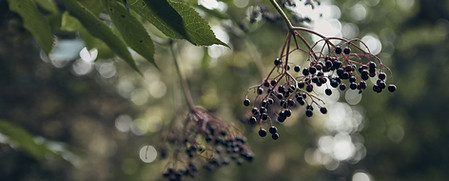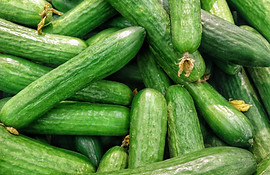Programs
City Sprouts offers workshops and classes, online learning tools for educators, educational programming, and more to educate the community about gardening and healthy lifestyle choices. Click on our programs below for more details!
Programs
City Sprouts offers workshops and classes, online learning tools for educators, educational programming, and more to educate the community about gardening and healthy lifestyle choices. Click on our programs below for more details!
growing gardeners workshops
The Growing Gardeners Workshop Series is a collaboration between City Sprouts and The Big Garden. We work together to offer four seasons of hands-on workshops that feature skills and techniques for every gardener and urban farmer: growing, cooking, preserving and eating healthy local food. All workshops are free and open to all ages.
Our workshops are broken up into three main tracks: Urban Ag School, Herbal Medicine Cabinet, and Culinary Workshops. We also have smaller workshops attached to various community events that we have throughout the year. Check out all of our workshop offerings on our Growing Gardeners website.
We love having guest teachers from our community lead workshops! Are you knowledgable about a subject that you'd like to share in a workshop? Reach out to our Education Manager and explain what skills you'd like to share.
growing gardeners workshops
The Growing Gardeners Workshop Series is a collaboration between City Sprouts and The Big Garden. We work together to offer four seasons of hands-on workshops that feature skills and techniques for every gardener and urban farmer: growing, cooking, preserving and eating healthy local food. All workshops are free and open to all ages.
Our workshops are broken up into three main tracks: Urban Ag School, Herbal Medicine Cabinet, and Culinary Workshops. We also have smaller workshops attached to various community events that we have throughout the year. Check out all of our workshop offerings on our Growing Gardeners website.
We love having guest teachers from our community lead workshops! Are you knowledgable about a subject that you'd like to share in a workshop? Reach out to our Education Manager and explain what skills you'd like to share.

little sprouts Live
Summer 2020 Session
Join us for Little Sprouts Live on Facebook for kid-friendly, virtual lessons on food, gardening, and the natural world!
Little Sprouts Live Summer Session
Week 1: The Seasons of Fruits and Veggies
Welcome back to another great summer of Little Sprouts! For our welcome lesson, we will learn all about the tools a gardener uses.
Suggested Summer Supplies
-
Boots or closed-toe shoes
-
Garden gloves
-
Trowel
-
Watering can or hose with sprayer
-
Cultivators
-
Pruners / Loppers
-
Wheelbarrow
Week 2: Hot Potato!
Cool Potato?
This week, we will review what it means for a plant to be a warm season or a cool-season crop, and we will plant our warm-season veggies in our garden!
Supplies
-
somewhere to plant (your backyard, or a large pot or bucket filled with soil)
-
warm-season seedlings (tomatoes, peppers, summer squash, seed potatoes, etc.)
-
trowel
-
close-toed shoes
Week 2 Questions:



What is your favorite cool season crop? (Hint: Look back to the Week 8 video for examples!)
What is your favorite warm season crop?
Can you remember what a "seedling" is? (Hint: Look back to the Week 2 video!)
Week 3: Save those Scraps!
This week, we will learn a few different ways to keep your kitchen waste out of landfills - like how to start a worm compost bin at home and how to regrow your kitchen scraps!
Supplies
-
A bunch of celery
-
An onion
-
At least 3 full carrots (not baby carrots!)
-
Soil
-
Small pots/jars/other small containers
-
Water
Optional Supplies if you want to create a worm bin at home:
-
A large tub
-
A sharp knife and an adult to help poke holes in the tub
-
LOTS of shredded paper, paper towels, other paper scraps
-
Mushy old veggies
-
Red wiggler worms (can find at Paradigm Gardens or an outdoor store like Cabela's)

Week 3 Questions:



What does "composting" mean?
Can you name 3 things that you can put in a compost bin?
Why is it important to keep kitchen waste out of landfills?
Week 4: Jammin' Berries
Who likes to jam? The City Sprouts berries do! Right now, our serviceberries and cherries are ripe, juicy, and ABUNDANT! This week, Anna will teach kids about food preservation and guide everyone through the steps to make a delicious quick jam to enjoy for weeks to come.
Supplies
-
1 qt (32 oz) of serviceberries, blueberries, strawberries, blackberries, or cherries, or a mixture. Please help yourself to the cherries and serviceberries ripe in the garden right now!
-
1/2 c. sugar
-
1 1/2 Tbsp lemon juice
Equipment:
-
Saucepan
-
Stovetop burner
-
Masher or fork
-
Ladle
-
(1) 16oz jar with lid and band
-
Hot mitts
-
Canning funnel (if available)
Week 4 Questions:




What are three foods berries can make?
What does "food preservation" mean?
Why is it important to know how to preserve foods from the garden?
Week 5: Passionate about pollinators
Birds and Bees and Butterflies - Oh my! To celebrate Pollinator Week (June 22-28) we are spending this Friday learning about the lives of our pollinator friends. We will also get a chance to make special seed bombs* to plant at home and help our pollinator friends do their important jobs. If you're interested in a kit or receiving future activity kits, sign up for our weekly Little Sprouts Newsletter.
Supplies
-
5 parts compost
-
3 parts papier mache powder
-
1 part wildflower seeds
-
Water
-
A bowl
Week 5 Questions:



What does "pollination" mean?
Can you name three animals that are pollinators?
Why is pollination important for our garden?
Week 6: Growing a Salad
To get back in the swing of things after our holiday break, we are digging right back in the dirt to grow ourselves a salad! We will learn about different types of seeds, make a seed book, and plant a delicious crop of salad veggies. If you're interested in receiving future activity kits, sign up for our weekly Little Sprouts Newsletter.
Supplies
-
Various salad greens seeds
-
A small box of crayons
-
10 index cards
-
Construction paper "book cover"
Week 6 Questions:



What kinds of fruits and vegetables can go into a salad?
Can you name the different parts of a plant?
What parts of a plant do we eat? (Hint: It's different for each fruit and vegetable!)
Week 7: Garden Fresh Chefs
This week, we will learn how to properly harvest veggies planted earlier in the year and create a yummy snack! If you're interested in receiving future activity kits, sign up for our weekly Little Sprouts Newsletter.
Supplies
-
Vegetables to harvest
-
8 ounces of Greek yogurt
-
½ cup mayonnaise
-
½ cup buttermilk
-
1 tablespoon dill (which you can pick from our Little Sprouts Beds!)
-
1/2 teaspoon garlic powder
-
Salt and pepper to taste
-
jar with lid
-
measuring cups and spoons
-
peas, carrots, radishes, turnips, or other dippable veggies
Week 7 Questions:



How do you properly harvest veggies from your garden?
What are three great reasons to cook your own meals?
What is your favorite veggie from the garden, and what is your favorite recipe to make with it?
Week 9: Naturally Clean Kids
What can we do with our garden plants besides make food dishes? We can do a lot - we can even clean our house and bodies with plants! This week, we will learn how to use our garden plants to become naturally clean kids all year round.
Supplies
-
(1) 16 oz spray bottle
-
White vinegar
-
Cheesecloth
-
Lemon balm
-
Distilled water
-
Several sprigs of fresh mint, dill, rosemary, or lemon balm
-
Reusable flannel squares
-
Reusable travel wipe dispenser
Learn how to make all-purpose spray & disinfecting reusable wipes
Week 9 Questions:



Why is it important to clean ourselves and our homes?
What is one reason that many popular cleaning products are harmful to the environment?
What is one reason that many popular cleaning products are harmful to our bodies?
Week 8: Urban Farm Friends (& Foes?)
Chickens, snakes, groundhogs, and worms, oh my! This week, Anna teaches kids about potential animal friends and foes within the garden / urban farm. There aren't any supplies needed for this lesson, just tune in and learn about the different animals, then explore in your own yard later!
Supplies
-
None this week!
Week 8 Questions:



Can you name three animals that you might find in a garden?
